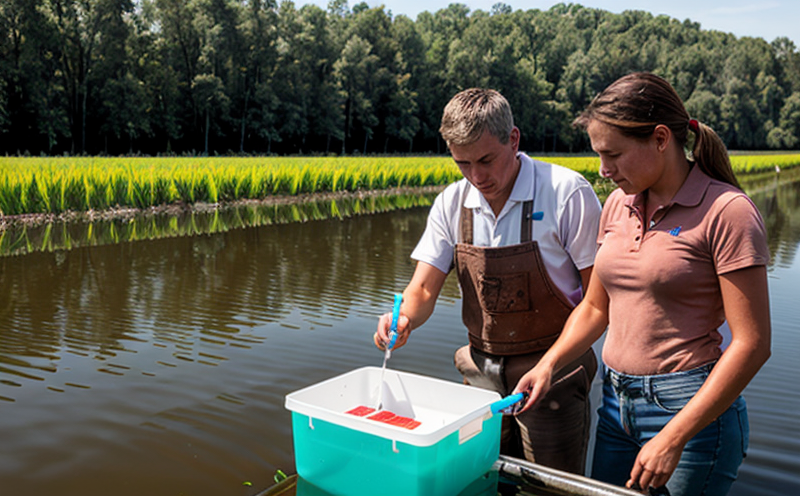Hydrocarbon Contamination Testing in Agricultural Water
The presence of hydrocarbons in agricultural water can have significant detrimental effects on soil health, crop productivity, and overall ecosystem balance. Hydrocarbons such as oil, gasoline, diesel, and other petroleum products can enter the water supply through various means including accidental spills, improper disposal, or natural seepage from underground storage tanks.
Hydrocarbon contamination in agricultural water is a critical issue that affects not only the quality of crops but also the health of livestock and local wildlife. This contamination can lead to soil degradation, reduced fertility, and impaired root growth, all of which impact crop yields negatively. Furthermore, hydrocarbons can leach into groundwater, posing long-term risks to both agricultural productivity and public health.
Accurate and reliable detection methods are essential for identifying the presence and extent of hydrocarbon contamination in agricultural water. These tests help farmers and agricultural companies take timely corrective actions such as implementing containment measures or sourcing alternative water supplies. By addressing these contaminants early, stakeholders can mitigate potential risks and ensure sustainable agriculture practices.
Eurolab's expertise lies in providing comprehensive testing services that meet the stringent requirements of international standards such as ISO 17025 for proficiency and reliability of laboratory operations. Our advanced analytical techniques allow us to detect even trace levels of hydrocarbons, ensuring accurate assessment and informed decision-making.
Our team of experienced chemists and environmental scientists uses state-of-the-art instrumentation like gas chromatography-mass spectrometry (GC-MS) and Fourier-transform infrared spectroscopy (FTIR) to analyze water samples for a wide range of hydrocarbons. This approach ensures precise identification and quantification, providing clients with detailed reports that are crucial for regulatory compliance and operational efficiency.
Testing agricultural water for hydrocarbon contamination is not only about detecting the presence of these harmful substances but also understanding their source and impact on the environment. By leveraging our expertise in this area, we can offer tailored solutions to help mitigate risks associated with hydrocarbon pollution in agriculture.
Applied Standards
| Standard | Description |
|---|---|
| ISO 17025 | The International Organization for Standardization (ISO) standard for proficiency and reliability in laboratory operations. This ensures that our testing methodologies meet the highest quality standards. |
| ASTM D92 | This American Society for Testing and Materials standard specifies procedures for the determination of the flash point by means of a closed cup apparatus, which is crucial for identifying hydrocarbons in water samples. |
Eurolab Advantages
- State-of-the-art laboratory facilities equipped with advanced analytical instruments like GC-MS and FTIR for precise hydrocarbon analysis.
- A team of highly qualified chemists and environmental scientists dedicated to providing accurate and reliable testing results.
- Comprehensive understanding of international standards ensuring compliance with regulatory requirements.
- Dedicated customer service to assist clients in interpreting test results and developing effective mitigation strategies.
Use Cases and Application Examples
Water quality testing for compliance with local, national, or international regulations regarding hydrocarbon contamination in agricultural water supplies.
Evaluation of the effectiveness of remediation efforts following a spill or other incident involving petroleum products.
Detection and quantification of hydrocarbons in irrigation systems to ensure safe water usage practices.
Assessment of potential risks associated with the use of contaminated water for crop cultivation, helping farmers make informed decisions about alternative water sources or treatment processes.





